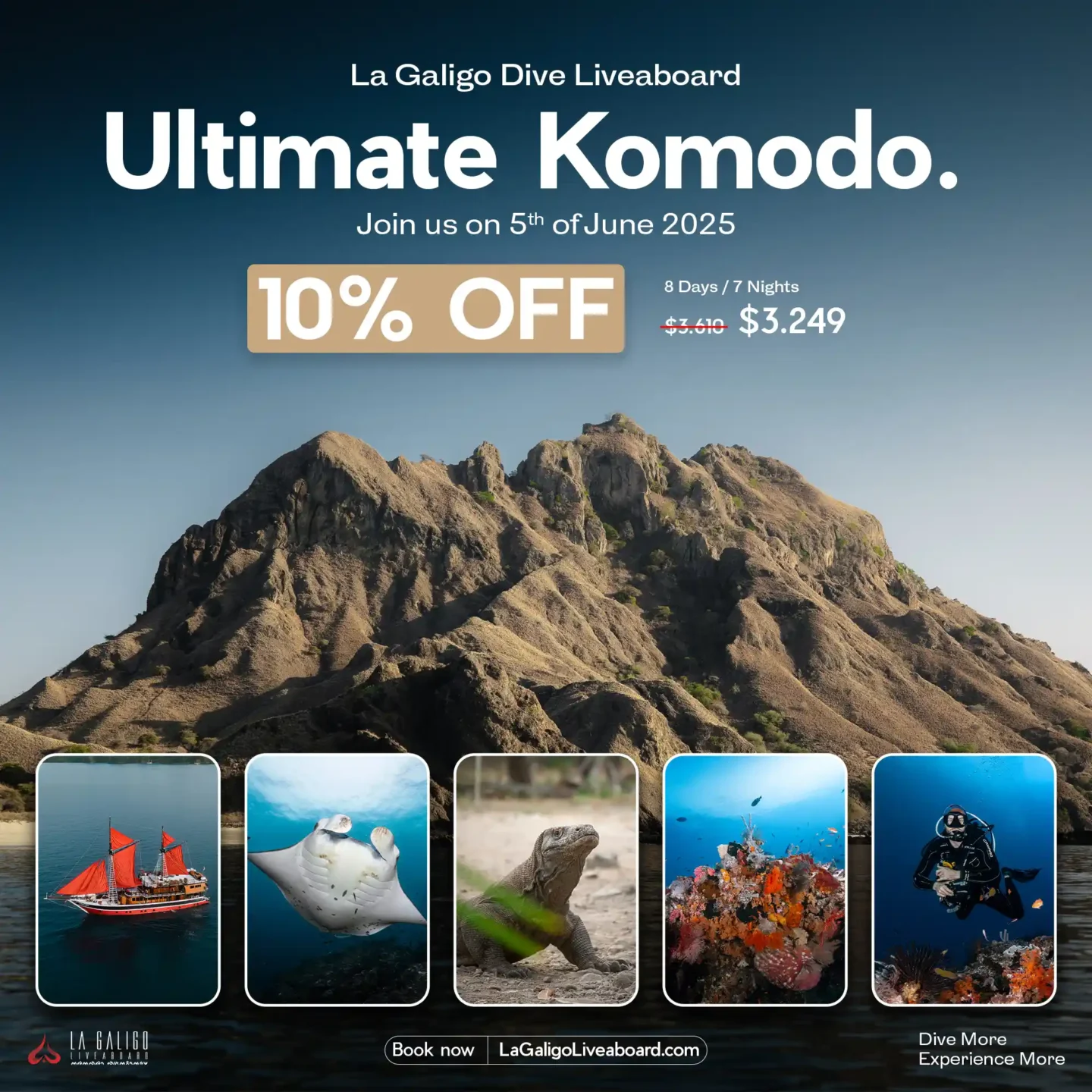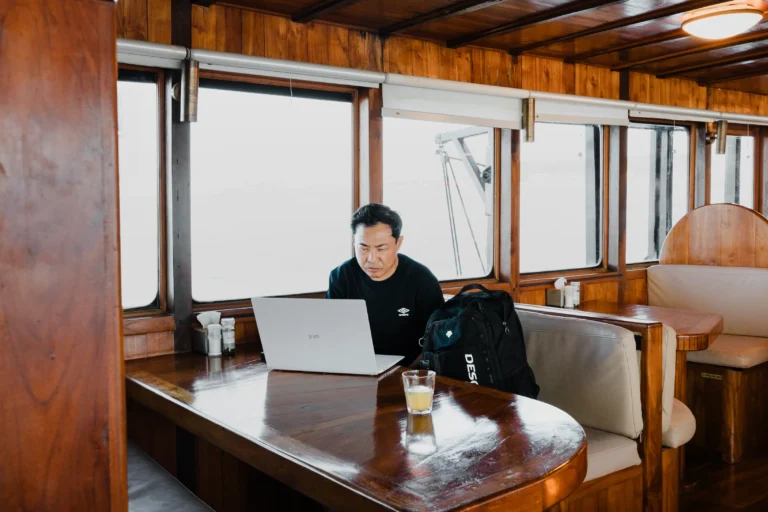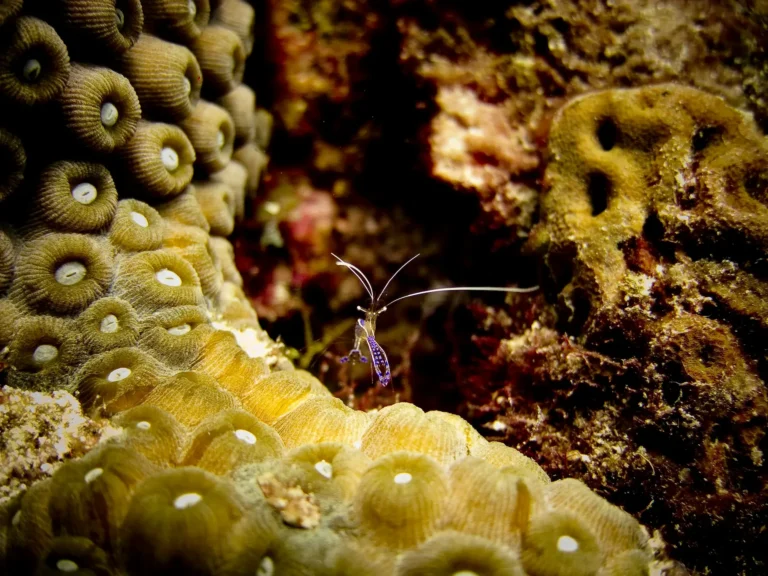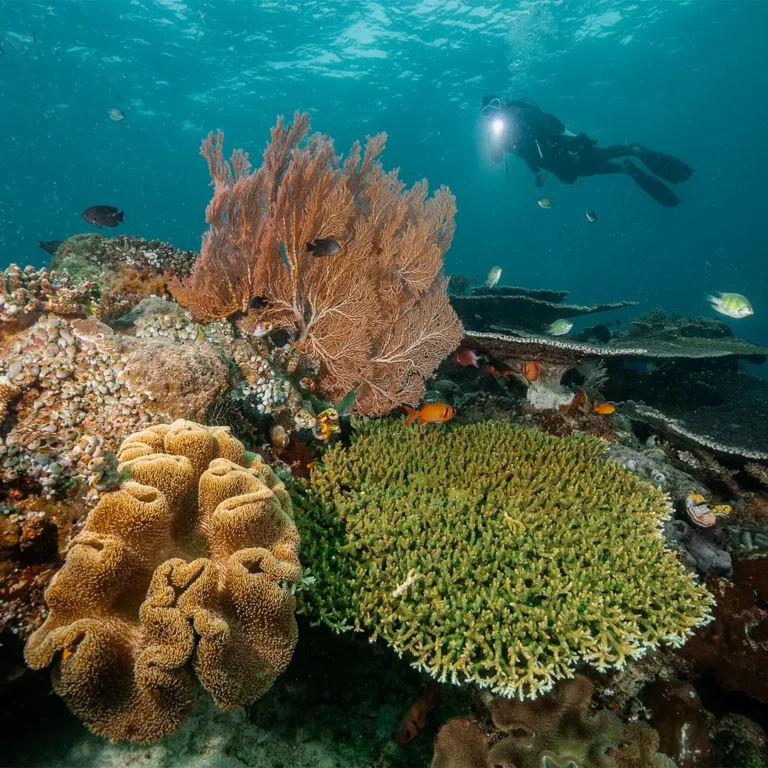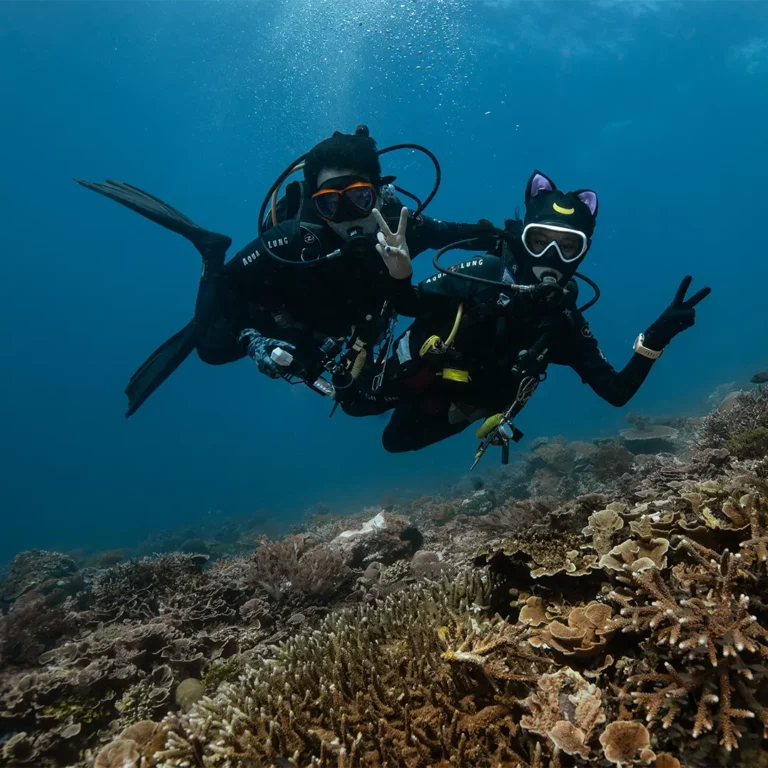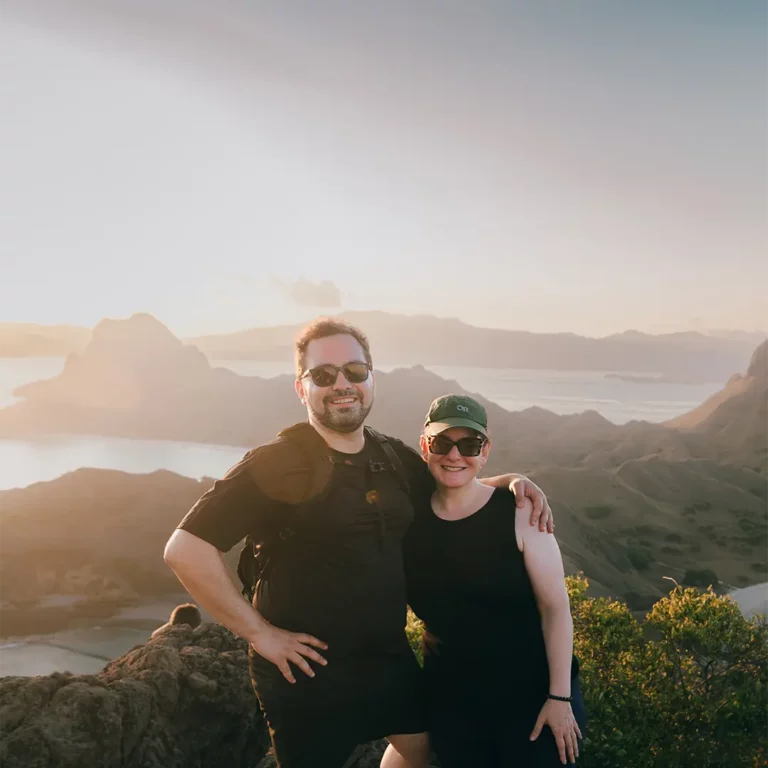Raja Ampat, in West Papua, Indonesia, is renowned for its breathtaking underwater landscapes and unparalleled marine biodiversity. The island of Raja Ampat sits smack dab in the middle of the Coral Triangle. Divers from all over the world travel to this remote haven to dive in its crystal blue waters and stunning coral reefs. There is a fascinating, little-known side of diving in Raja Ampat that is gaining popularity: mud diving and dirt diving.
We’ll be taking you on a journey to see the hidden treasures of Raja Ampat’s muck and dirt dives as we go on a liveaboard adventure. We’ll explore the thrilling world of underwater photography techniques and show you some of the incredible marine species that call Raja Ampat home.
The Enchantment of Raja Ampat
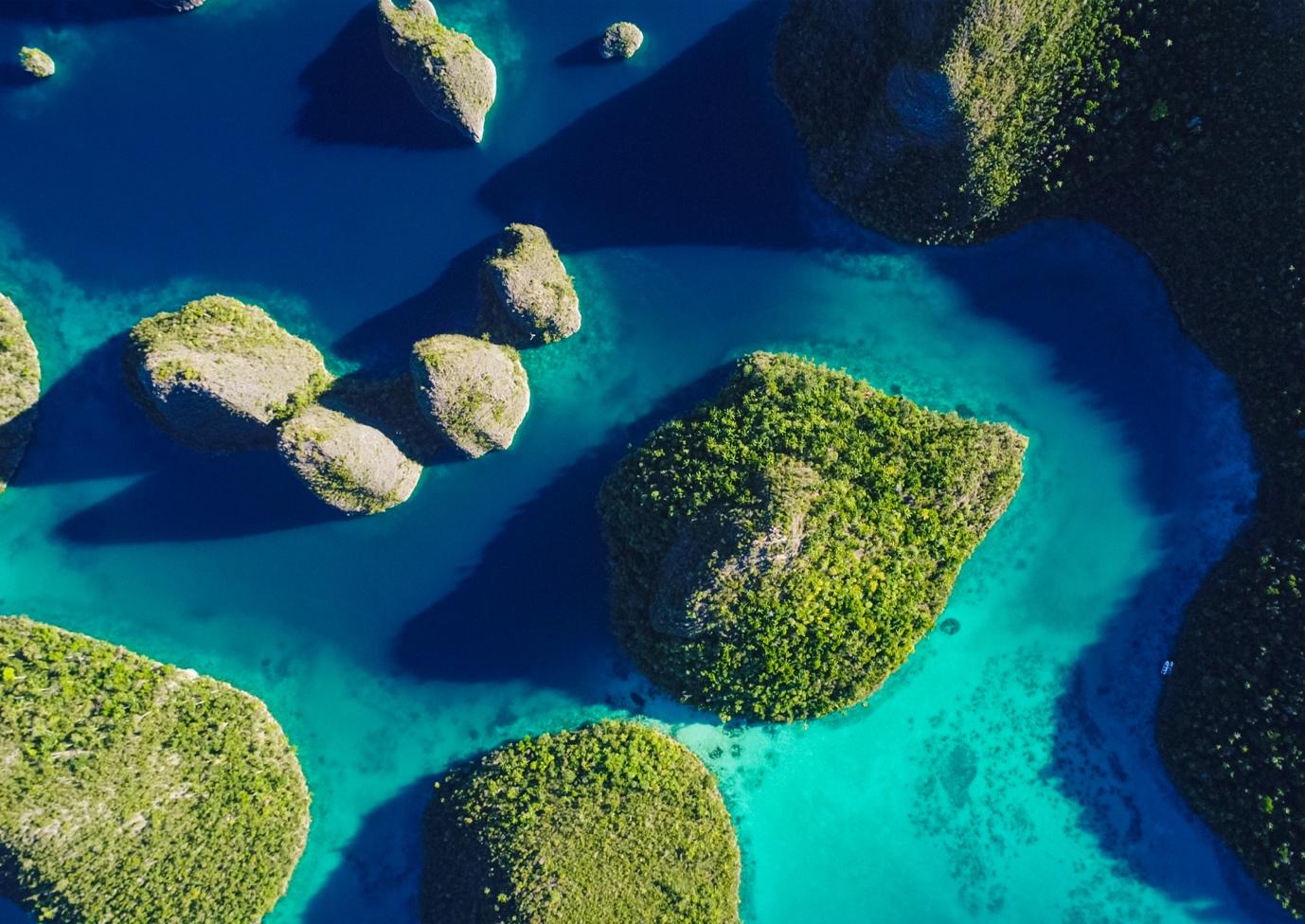
With more than 1,500 islands and islets, Raja Ampat, also known as the “Four Kings,” is an unrivaled paradise for nature lovers. This region is well-known for its pristine coral reefs, clear waters, and extraordinary marine life. The mucky dive locations in Raja Ampat are just as appealing as the colorful coral gardens above the water.
So what is “mud diving” and “dirt diving.”
Dirt diving, often known as mud diving or muck diving, is a subset of scuba diving that takes divers to normally unexplored muddy or silty seafloors. Although as the name suggests silt, even clear sandy bottom floors can be classed into this category. Even though it’s not as flashy as diving among brilliant coral reefs, dirt diving is appealing and has its merits. These dives provide an opportunity to see marine life you wouldn’t see anywhere else, as well as interesting geological features and a fresh perspective on the ocean floor.
Chapter 1: Raja Ampat’s Private Dirt Dive Sites
Raja Ampat’s exceptional dirt diving sites are perfect for risk-taking divers looking for adventure. Here are some of the best sites available:
Cape Kri Mucky
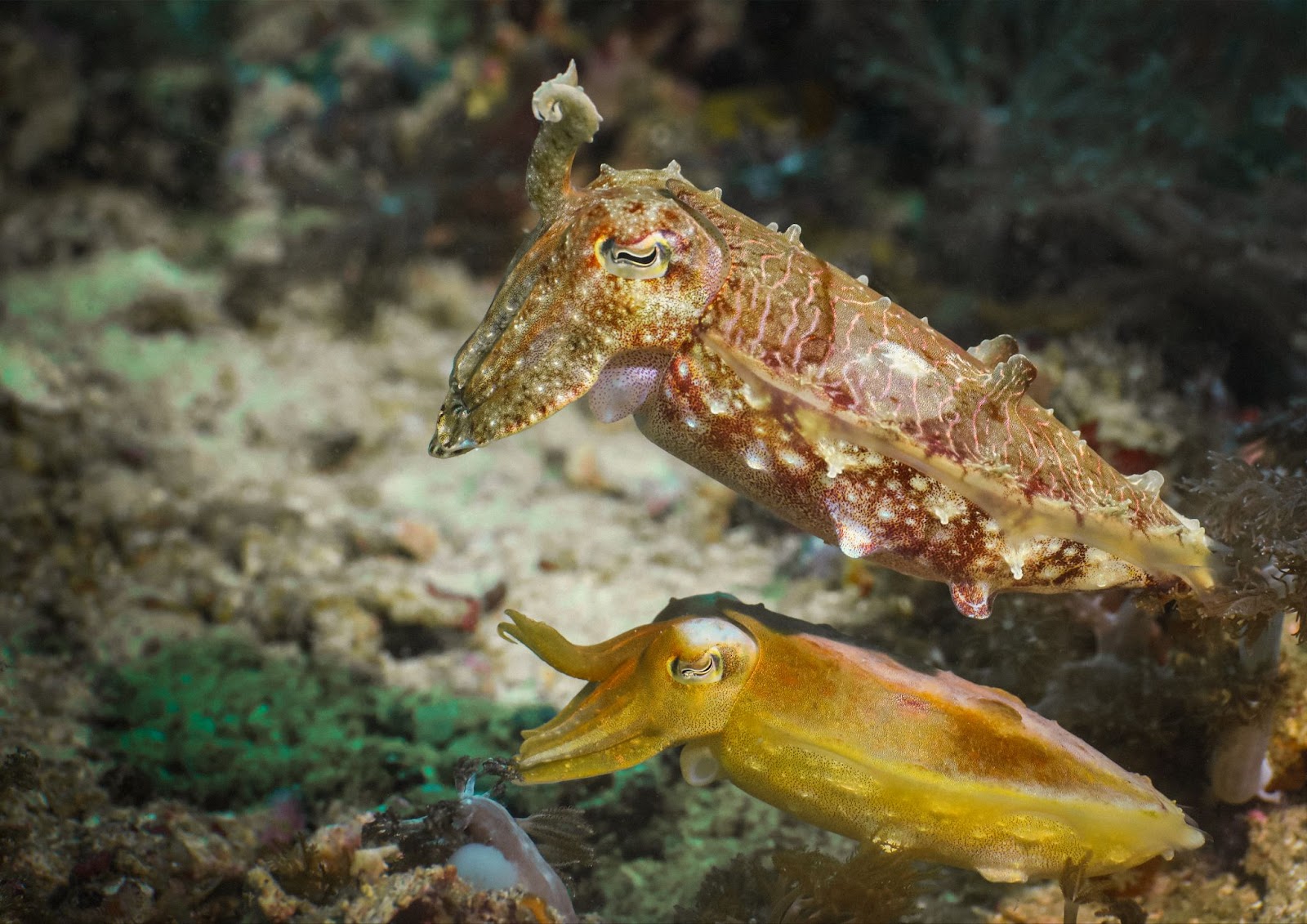
Cape Kri Mucky’s waters are well-known for their abundance of marine life because of the abundance of nutrients in the water. Explore the murky depths and you may come across some strange and exotic creatures, such as mimic octopuses, phantom pipefish, and colourful cuttlefish. The stuff of dreams for macro photographers!
Arborek Jetty
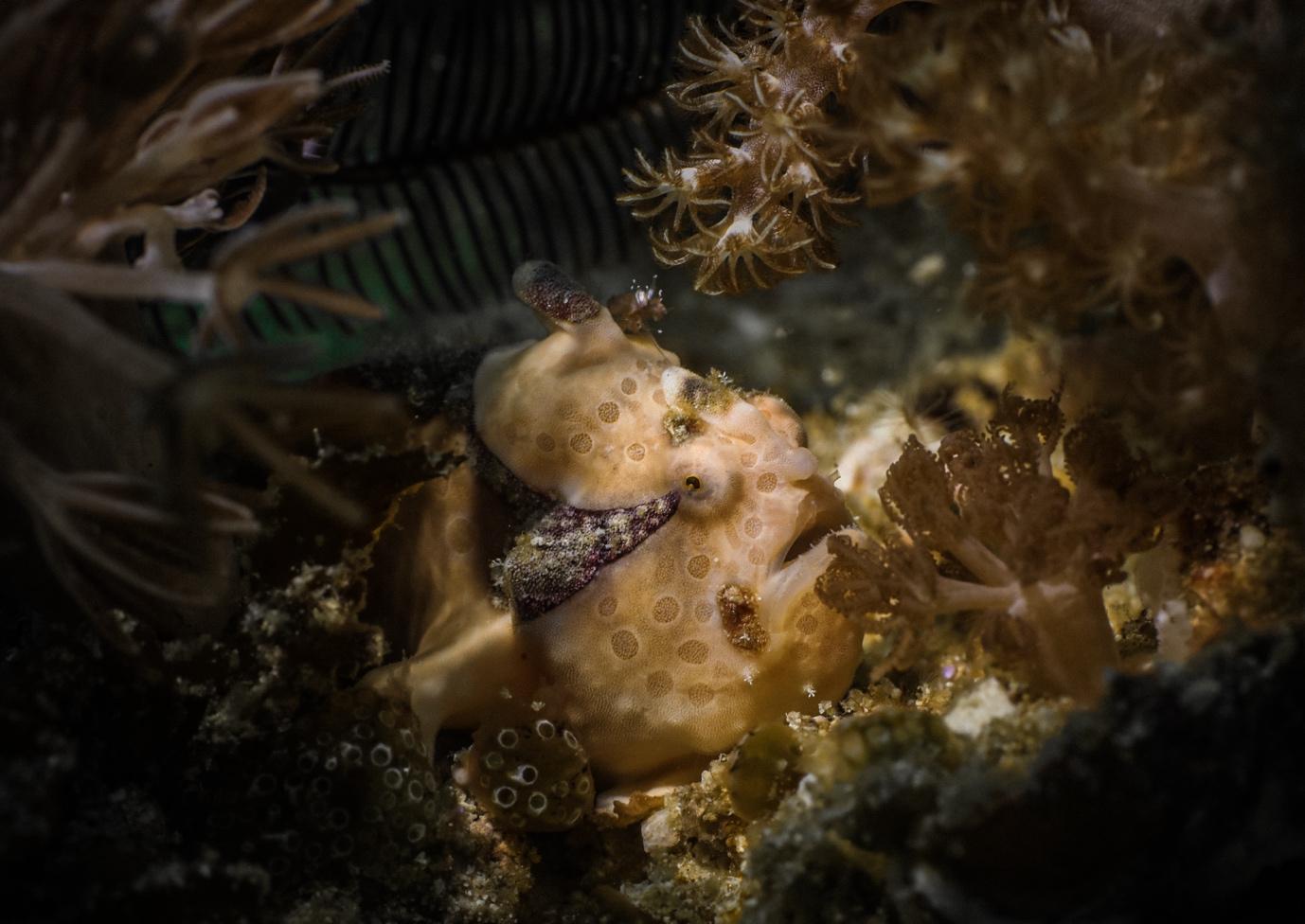
Arborek Jetty is well-liked by those interested in macro photography. Underneath the wooden jetty, there is a diverse ecosystem that is home to pygmy seahorses, frogfish, and nudibranchs. The vivid marine life below and the jetty’s rustic structure make for a stunning photo opportunity.
Batanta Island’s Mangroves
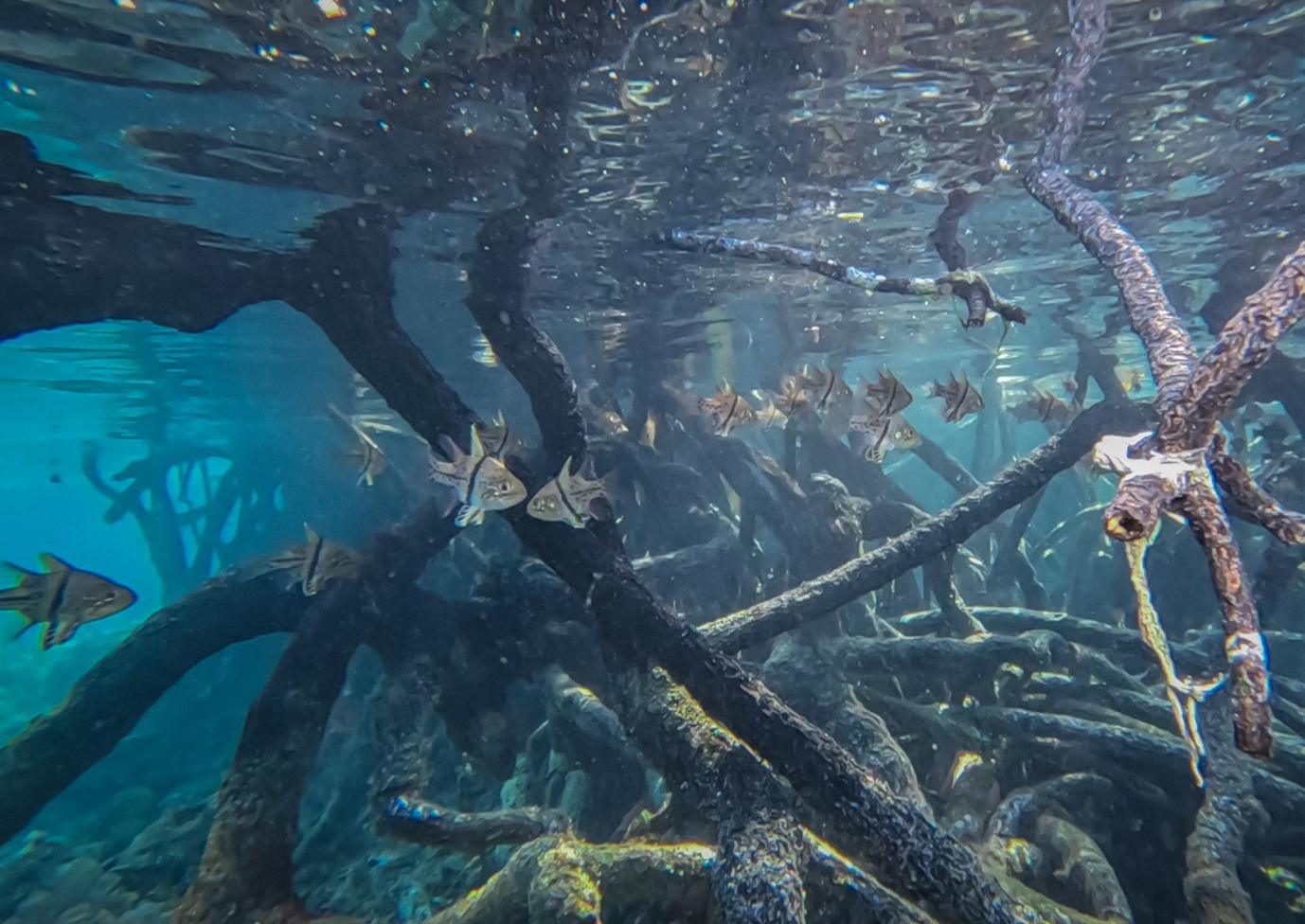
Batanta Island’s mangroves provide a one-of-a-kind environment for dirt divers. As you make your way through the shallow, muddy waters, keep an eye out for the seahorses, baby fish, and strange marine invertebrates that call this ecosystem home.
Chapter 2: Scuba Diving Photography & Techniques
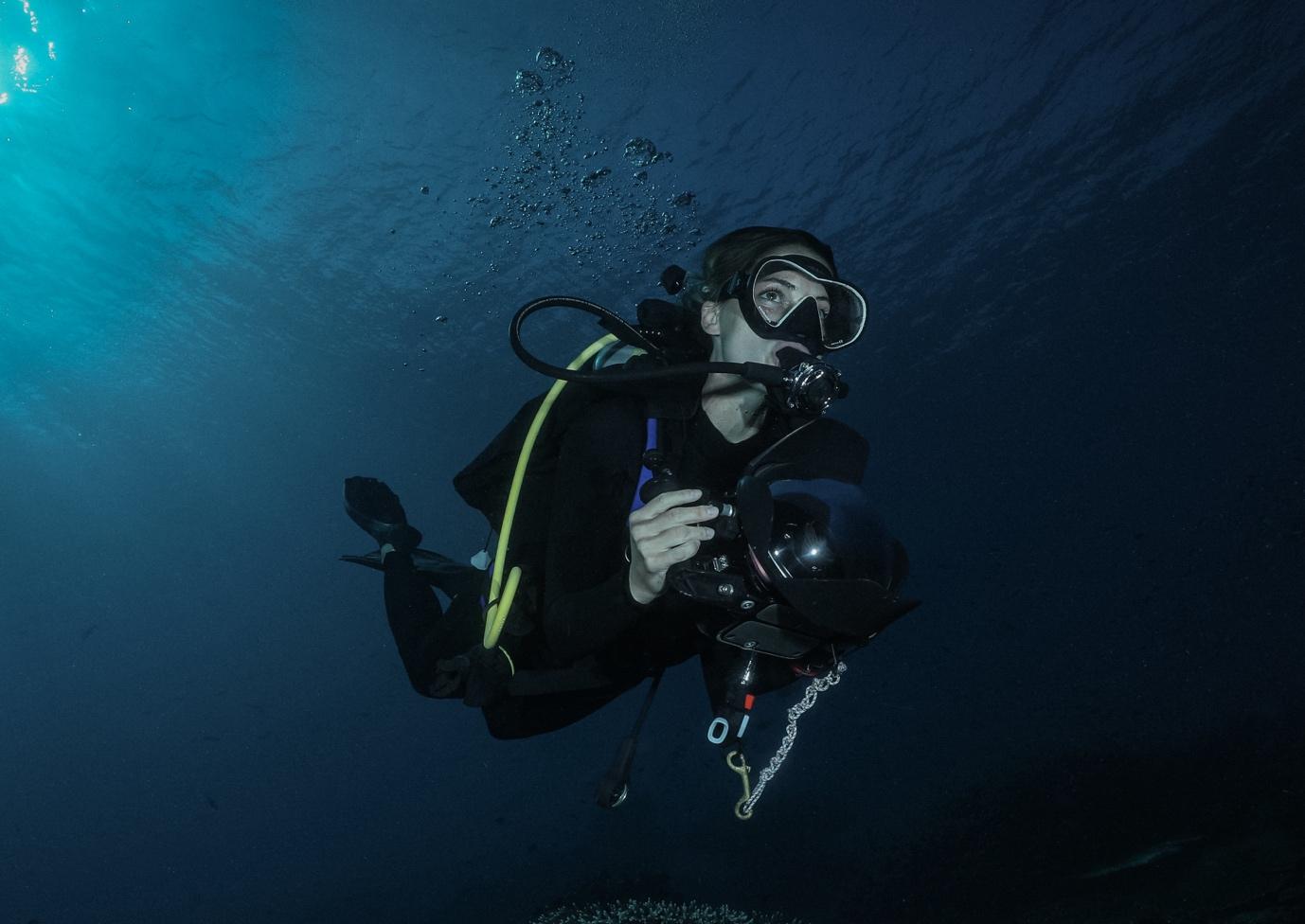
Great control and techniques are not easy to master on dirt dives, but once you do, the rewards are well worth the effort. Use a macro lens (2.1) to get the most out of your underwater photographic opportunities while scuba diving.
ALSO READ : Is Komodo Island a Good Place to Scuba Dive? A Guide to Liveaboard Adventures
Macro photography
Macro photography is essential when going on a dirt dive so that you can capture the minute and often mysterious creatures you’ll come across. Using a specialized macro lens, you may get quite near to these fascinating topics.
Strobe Lights
It is impossible to see clearly in water that is too dark or too muddy. Use strobe lights to highlight your subjects and bring forth their true hues. Backscatter occurs when water droplets reflect light into the camera and can be avoided by changing the camera’s angle of view.
Stability Management
Holding your buoyancy steady is crucial when taking tiny details in macro. Neutral buoyancy allows you to snap crisp, well-composed photographs without disturbing the delicate marine life.
Consistency and Precision
For dirt diving, you need to be patient and precise. Move slowly towards your subjects and avoid making any sudden movements that could shock them. Take your time framing the perfect shot, and don’t be afraid to take multiple shots to ensure you’ve captured the best possible moment.
Chapter 3: Raja Ampat’s Marine Life
One of the most remarkable aspects of dirt diving in Raja Ampat is the chance to observe some of the most unique and rare marine species in the world. Here are just a few examples:
Pygmy Seahorses
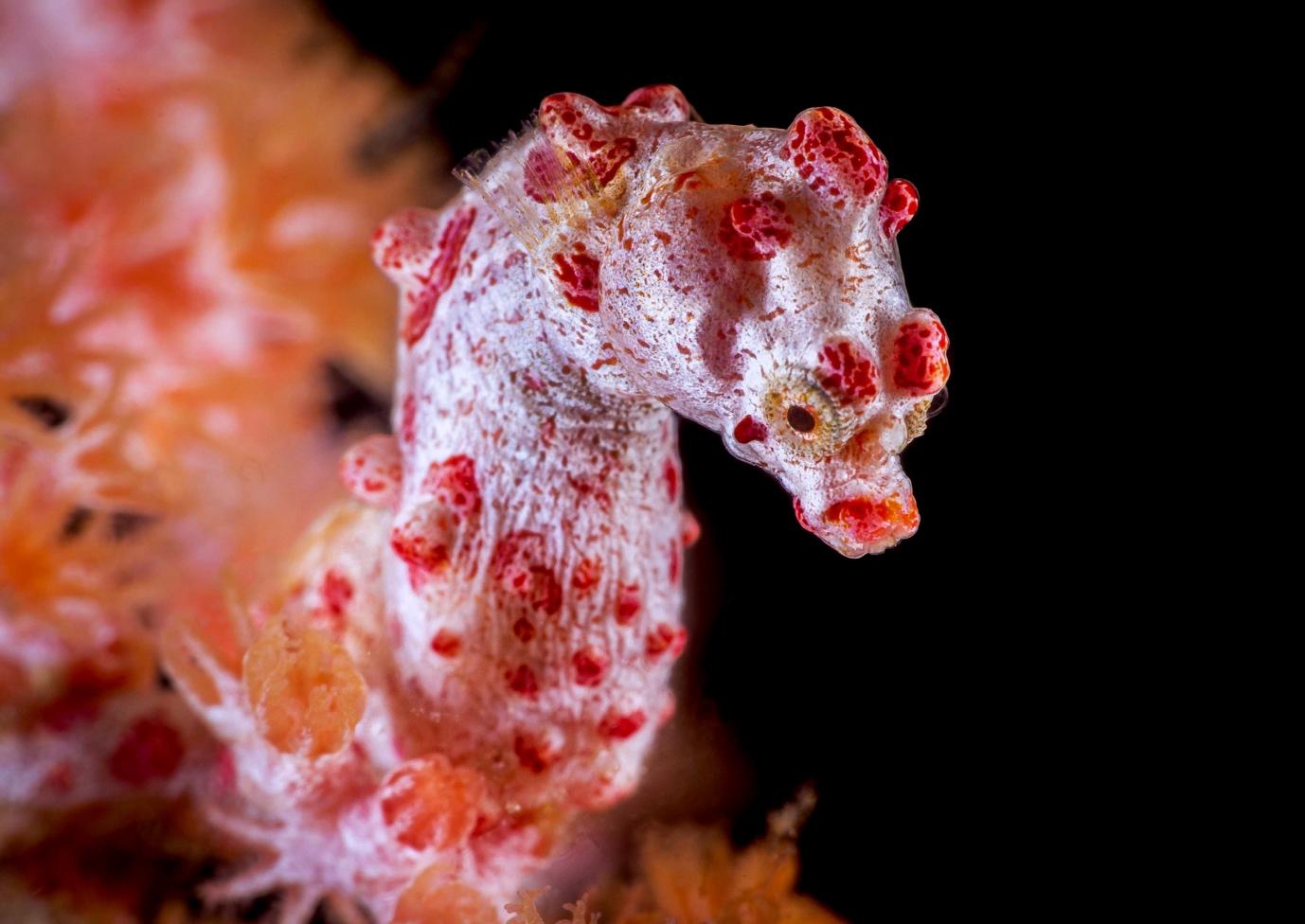
Bottom divers frequently come across this little fish lurking among the fan corals in Raja Ampat, where they are known as pygmy seahorses.
Blue Ring Octopuses
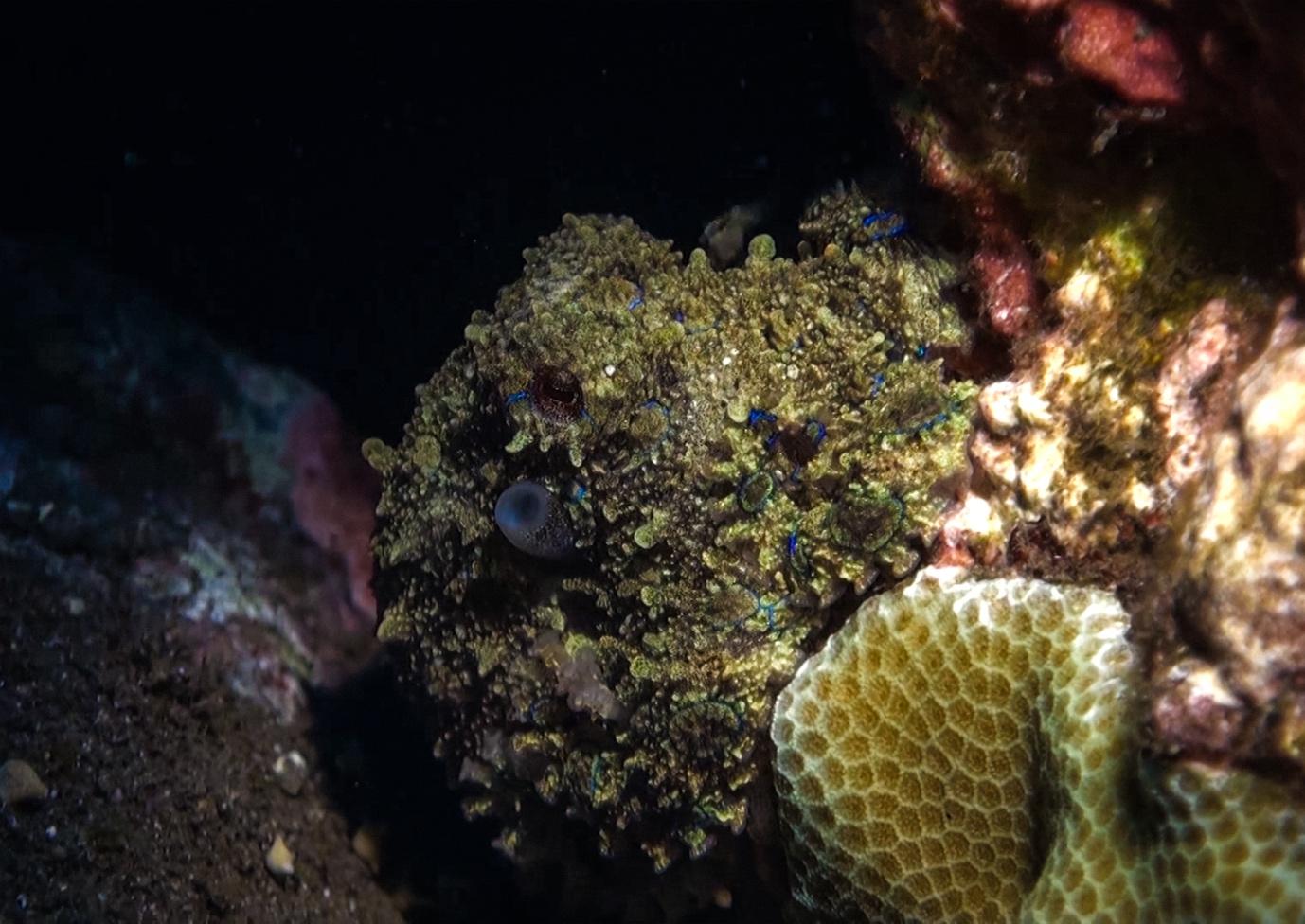
Are a challenging but attractive subject for underwater photographers because of their small size and outstanding camouflage. They are experts at disguise, and these small octopuses are lethal. They are beautiful to shoot from a safe distance, but their bright blue rings serve as a deterrent to would-be predators.
Wonderpus Octopuses
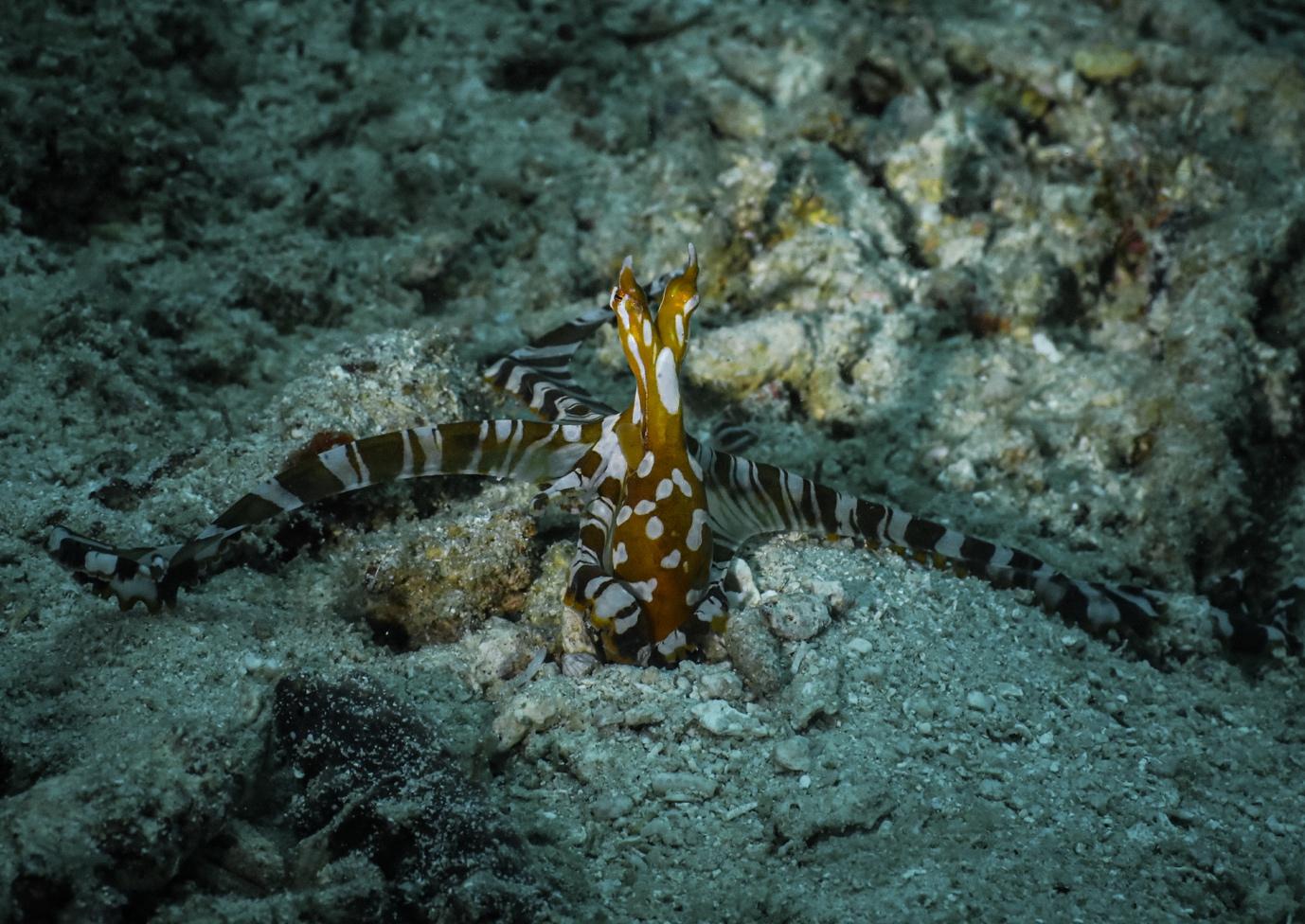
Wonderpus octopuses are famous for their mesmerising, undulating movements. Filming their dance is an impressive feat, and they make intriguing subjects.
Mandarin fish
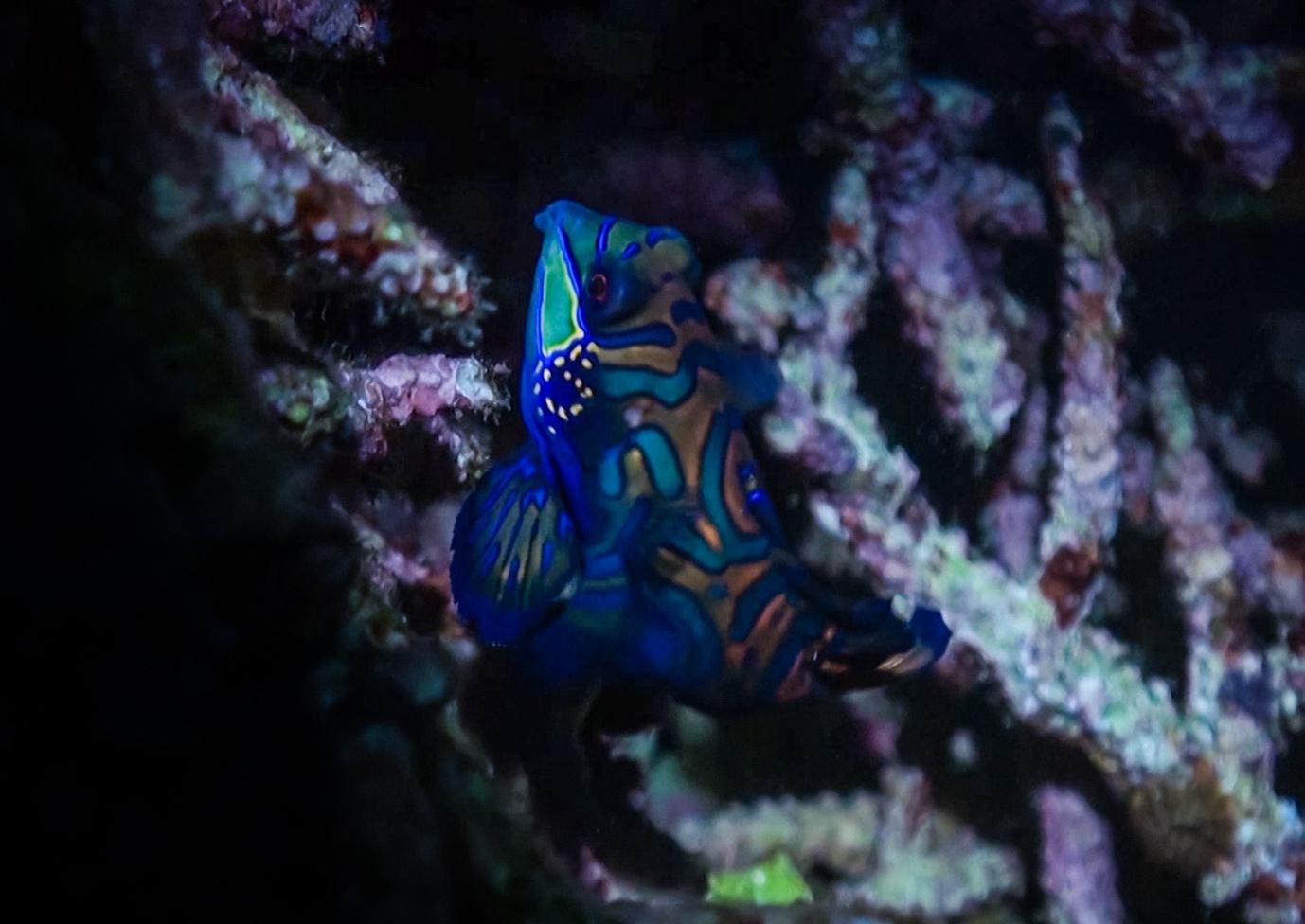
Underwater photographers love Mandarin fish for their bright hues and distinctive patterns. Due to their habit of appearing on dives at dawn or dusk, these fish present a challenging but interesting topic.
ALSO READ : Exploring the Depths: What Can You Do on a Liveaboard Dive Trip in Komodo and Raja Ampat
Chapter 4: Liveaboard Travel in Raja Ampat
A liveaboard dive trip such as La Galigo Liveaboard is the best way to explore the mud and dirt diving of Raja Ampat. Diving from a liveaboard is a great way to see more of the ocean and see more of the world. Explore everything from vibrant coral reefs to mysterious muddy bottoms over multiple daily dives aboard a liveaboard.
Raja Ampat’s dirt diving and muck diving are like hidden treasures waiting to be unearthed by adventuresome divers and underwater photographers. These one-of-a-kind experiences are excellent opportunities to witness rare and enigmatic marine life, as well as to gain a new perspective on the undersea environment. Whether you’re a seasoned scuba diver or just starting out with your camera, the underwater wonders of Raja Ampat’s mud diving locales will blow your mind. To fully appreciate the magic of dirt diving, you must pack your gear, hop on a liveaboard, and travel to Raja Ampat in Indonesia. Check out the schedule of trips for La Galigo Liveaboard here, all of which could take you to some if not many of these amazing muck dive locations.

